My Idea Of A Good Time (Sad), or, My September 2025 In Media

Being born in a literal desert was not enough to override the Welsh programming of my DNA, and therefore I spent September being the one person in my heat-loving Australian city clinging to the coldest, wettest winter we’ve had in a very long time.
Alas, the seasonal switch has been flipped, and we have begun our return back towards Satan’s scrotum. The only thing that makes this bearable are the flowers bursting to life with the warmer weather. My partner and I spent the last quarter of 2024 ripping out the dozens of square meters of astroturf a previous owner decided was a brilliant idea for the backyard and planted a summer-hardy garden full of native plants, trees and wildflowers (plus a few cottage bulbs for flair) and they’ve been putting on a spectacular display for the last few weeks. What was once a boiling plastic wasteland is now full of birds, bees, and even the occasional butterfly. It’s always nice to see something move in that direction, rather than the other way round.
Anyway. Let’s talk media!
BOOKS READ:
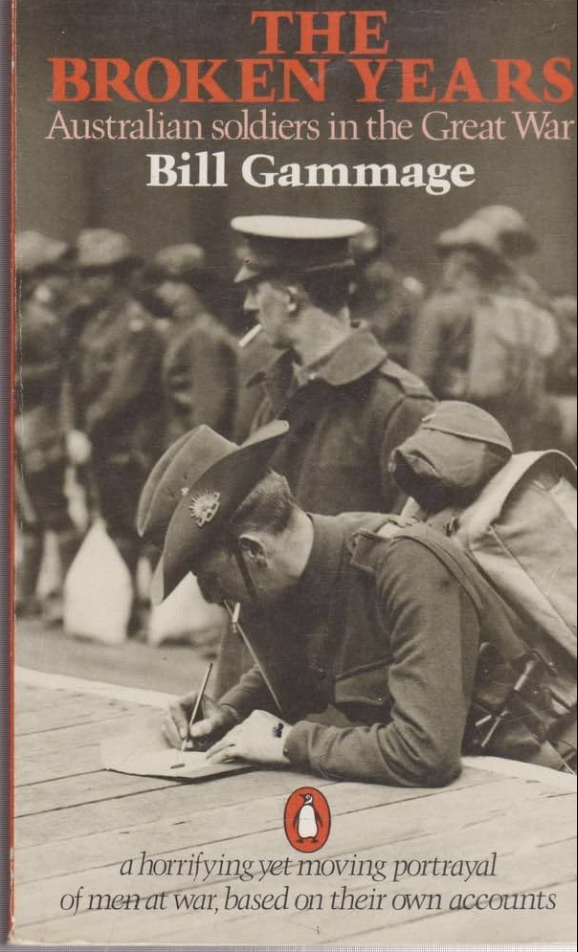
The Broken Years by Bill Gammage (1974)
Format: PDF (via the Australian National University)
I’ve been researching the Australian contribution to WW1 for a personal project, and this is one of the texts I’ve been referencing. Being published in 1974 as an extension of Gammage’s university thesis, this is a piece that grants nearly 60 years of perspective on WW1 while still allowing interviews with the surviving soldiers. I didn’t always see the greater picture in the way Gammage ordered his information and commentary, and I found him too eager to minimise and excuse the sexual and physical assault, arson, property damage, theft, and virulent racism enacted from Australian and New Zealand soldiers in Egypt and Palestine, but the collection of first-hand accounts, sources and recollections here are really something. I appreciated Gammage’s work in contextualising these accounts, and I understand the urge to try to piece together a national identity out of these extremely varied men, but this book was most useful to me when it allowed the men to tell their own stories. And god, did reading all those letters and then seeing so many “killed in action” abbreviations in their footnotes really sting.
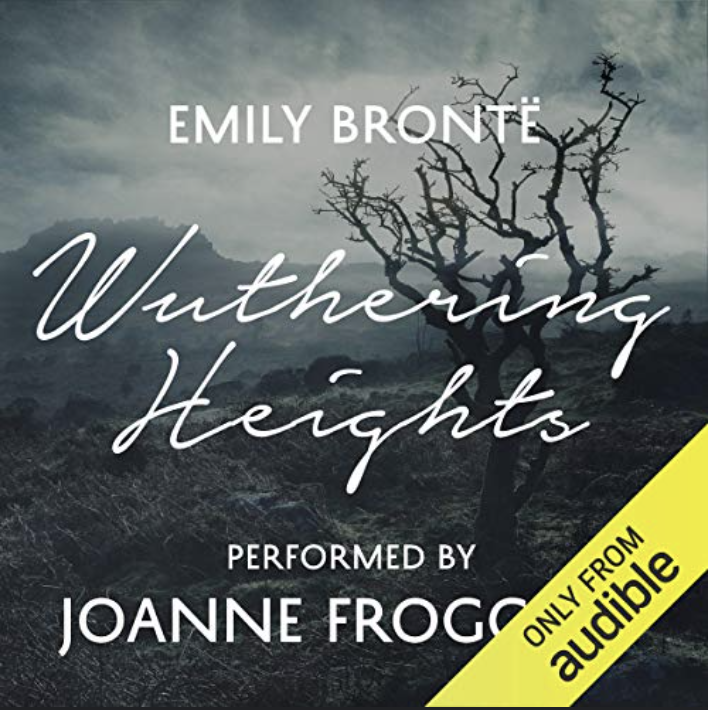
Wuthering Heights by Emily Bronte (1847)
Format: Audiobook, performed by Joanne Froggatt
Yes, the horny Wuthering Heights trailer did only drop last month, and yes, the two days of discourse around it did remind me that, despite having read the book twice in my lifetime and having seen at least one of the many already existing screen adaptations, I couldn’t remember more than a handful of details about the story. So, naturally, I decided to embark on a reread.
I think Kate Bush has a lot to answer for (affectionately) about how this book currently exists in the public consciousness. An adaptation all of its of its own, her song focuses entirely on a passionate, romantic yearning between Heathcliff and Catherine Earnshaw-Linton as told by Catherine’s ghost. And while it does feel very much like a version of the story Catherine would tell if she had the power of narration, the book is told to us in a kind of narrative nesting doll. The gloomy saga of two neighbouring, secluded houses full of wealthy orphans is presented via Nellie, Wuthering Heights’ long-suffering housekeeper, via Mr. Lockwood, a fairly gossipy Londoner who has just taken up tenancy at the newly empty Thrushcross Grange. It’s much funnier and nastier than the angst it’s remembered for and should be read more as a cautionary tale against racial vilification, overcomplicated revenge plots and secluding your daughter from society than as any form of romantic ideal. And while I enjoyed my time with Emily Bronte, this experience has reminded me Wuthering Heights is a book I just don’t care very much about.
There’s an apparently quite good movie on Emily Bronte herself that I might check out soonish, but otherwise, my appetite for Wuthering Heights has now been thoroughly sated for at least the next decade.
Do let me know if Emerald Fennell makes Jacob Elordi shag a rotting corpse, though.

American War by Omar El Akkad (2017)
Format: Paperback (Picador)
I read Omar El-Akkad’s non-fictional One Day, Everyone Will Have Always Been Against This earlier this year and enjoyed his brain and his writing style enough to go back and seek out his fictional debut. Dystopian but not sci-fi, American War follows a young Black woman trapped with her family on the losing side of the USA’s next civil war.
In a nice stylistic baton from Wuthering Heights, American War also employs a neat little framing device, filtering the tragic story of Sara T. Chestnut through the eyes of someone who thought they knew her. El Akkad’s writing is engaging and very readable, and he employs his journalism background well here in telling a story that feels both sweeping and intimate. While the narrative structure of the book itself isn’t at all satisfying, it worked really well for me on a thematic level. There’s no catharsis to be found in this story about a girl radicalised by tragedy and groomed by warmongers, only a warning against the futility and corruptive nature of war.
I can’t speak to the authenticity of much of the projected US politics and cultural elements at play here, but I enjoyed this very much as a character piece and an anti-war fable.
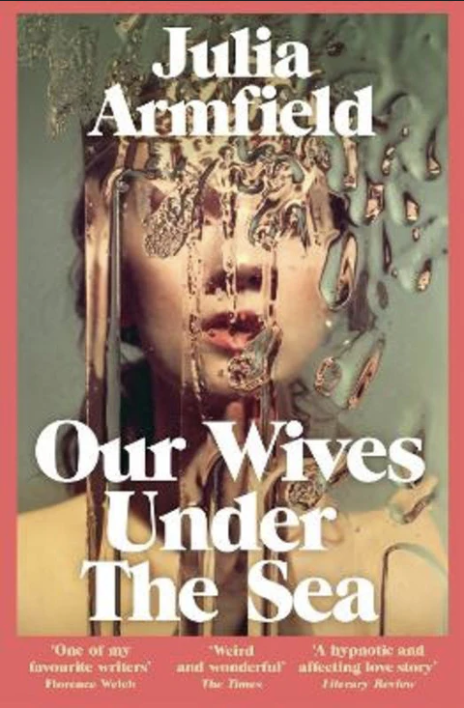
Our Wives Under The Sea by Julia Armfield (2022)
Format: Paperback (Picador)
Another re-read! Good books are always worth revisiting, and while I really enjoyed (and, dare I say, raved a bit about) Our Wives Under The Sea when I read it in 2022, there were elements to it I definitely missed. I was heavily on TikTok at the time of reading, and it was marketed by readers there (possibly led by the publisher, I can’t remember) as much more of a horror/sci fi novel, when it is, I think, a literary domestic drama with science fiction and horror elements. Which, sure, doesn’t roll off the tongue quite as easily in a four second video.
Our Wives Under The Sea is told in split-perspective between wives Miri and Leah. Miri’s side of the story is set in the present, in which this anxiety-ridden hypochondriac still processing the loss of her mother to a possibly genetic degenerative disease now has to deal with the return of her wife – who she had just accepted was probably dead – from a deep sea expedition gone terribly awry. Leah’s side is set entirely on her submersible, trapped with two other people for six months on the bottom of the ocean, with something in the dark outside.
On first read, Leah’s side of the story was the most engaging to me, and the smaller space allocated to it in comparison to Miri’s was occasionally frustrating. But on second read, free of the need to solve a mystery, I found Miri’s journey completely captivating. A “passive character” is generally a criticism when it comes to books and movies, and rightly so – it usually indicates a lack of agency and momentum, usually a sign of an author’s inexperience or lack of vision. But I love it when passivity in a character is either actively thwarted (The Hobbit by JRR Tolkien being the most famous example) or purposely explored as a character flaw (Bateater by Kylie Lee Baker is another great one I read this year doing this). Miri is passive and self-absorbed (read: mentally ill) in ways I deeply identify with and forcing her to reckon with that while presenting her with a time-sensitive tragedy is just… chef’s kiss. And the contrast of Miri’s storyline forcing her to let go of Leah while Leah’s sees her clinging desperately to Miri as a beacon of hope? Oof, friends. OOF.
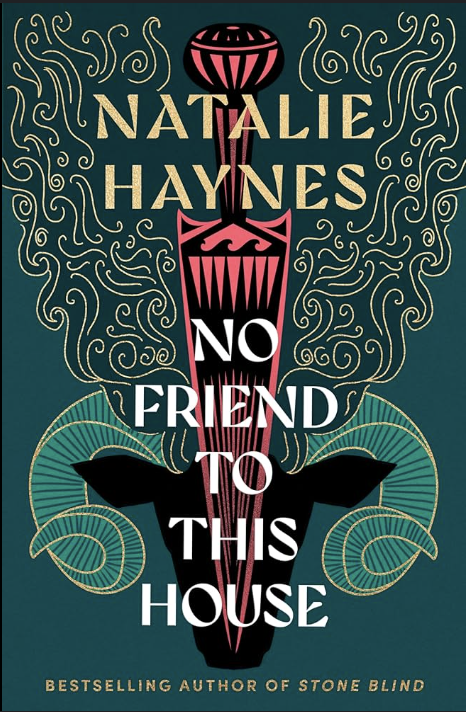
No Friend To This House by Natalie Haynes (2025)
Format: Audiobook, performed by Natalie Haynes
I have a handful of authors who I find to be 100% reliable for a Good Time (or, rather, my version of a good time, which is actually a terrible time conveyed via competent-or-better writing) and Natalie Haynes is one of them.
No Friend To This House is Haynes’ long-awaited take on Medea, but much like with Medusa in Stone Blind and whoever you were most hoping to hear from re: The Trojan War in A Thousand Ships, Medea’s voice is just one in a broad chorus of the women upon whom Jason of the Argo built his legend. She’s the star, obviously, but being at the end of Jason’s fabled journey, we don’t meet her until a third of the way through the book.
Like Stone Blind and A Thousand Ships, No Friend To This House often feels like a short story collection with a connected narrative, particularly up until Medea arrives to provide a consistently recurring viewpoint. This style of storytelling really works for me. Not just because I’ve become a short story collection fan, but because, in this particular context, it creates a real sense of scope. Haynes is adapting stories that were traditionally performed, rather than read, and she manages to give her updates fresh perspective while keeping a choral sensibility. And, like Claire North’s incandescently good Songs of Penelope trilogy, Haynes is able to present a feminine focus that still feels epic.
It also lets her play with perspective in a way I always like. Medea and Jason’s characters are filled in by many points of view, allowing them to be every bit as complex, clever, petty and pathetic as their respective hero to villain arcs require them to be. And while there are a few points of Medea’s story I’d have appreciated a bit more of her commentary on, it is nice when an author trusts you to fill in the blanks yourself.
MEDIA WATCHED:
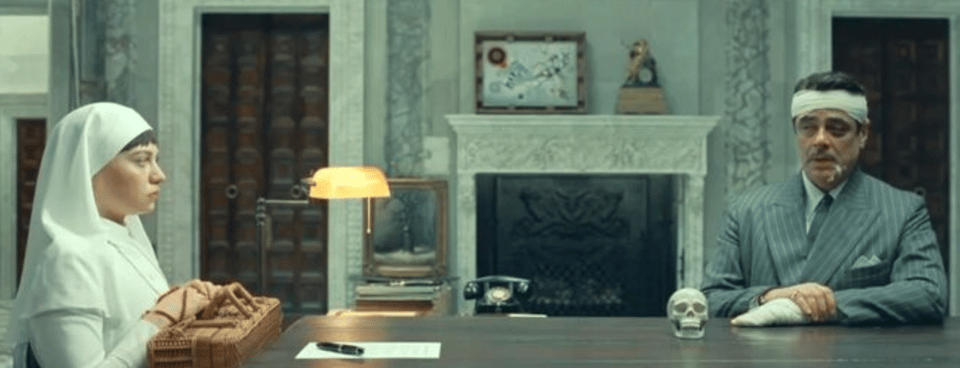
The Phoenician Scheme (Dir. Wes Anderson, 2025)
Streamed or rented from somewhere, IDK
I must cop to being a Wes Anderson fan. I am just the right level of emotionally repressed to find his films incredibly moving, I love his old-Hollywood approach to sets, cinematography and colour, and I think he brings out a really playful side in his big star casts. Hit or miss, his movies always feel like cinema to me. There’s always artistry and craftsmanship and razzle dazzle. And between The Phoenician Scheme and Asteroid City, Anderson seems to me to be embarking on an increasingly surrealist, hopeful journey that reminds me a little bit of all my favourite things about David Lynch.
Despite its stacked and very well-used cast, The Phoenician Scheme is essentially a three-hander between Benecio Del Toro, Mia Threapleton and Michael Cera as an arms dealer, his estranged daughter/nun and his Swedish tutor/administrative assistant respectively. The plot involves a hairbrained scheme involving jetting around the world and swindling investors, but the story is simple: a very bad and selfish man has (another) near death experience, realises he is functionally alone and has given nothing of any genuine value to the world, and seeks meaning in his family. It has a lot of bones in common with The Royal Tenenbaums, but is distinctly sillier, quite a bit weirder, and eschews so much of the bitter to deliver something I’d mostly call straight-up sweet. The performances of the main trio are particularly delightful. Benecio Del Toro has always been a stone-cold star, but Michael Cera is having the time of his life chewing the scenery, and relative newcomer Mia Threapleton does an impressive job grounding them both as a monotone, bougie nun who acts as both the voice of reason and an advocate of ethical behaviour.
It’s not my favourite Anderson, but it is a wonderful time, and a strong reminder that I need to start building up a Wes Anderson Blu Ray collection.
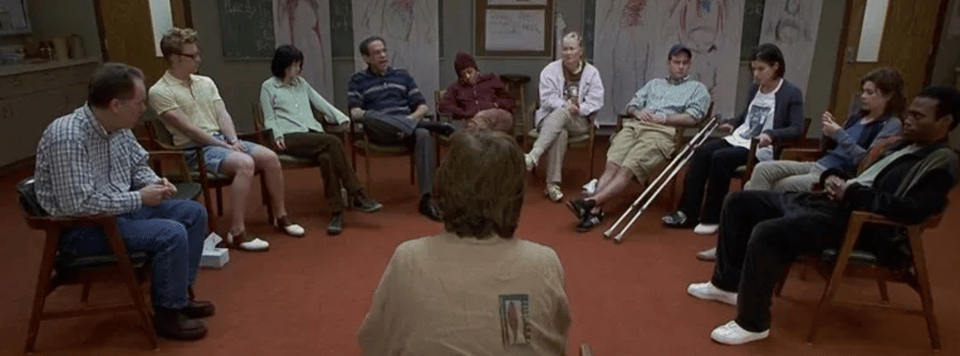
28 Days (Dir. Betty Thomas, 2000)
Streamed on Netflix
28 Days is my favourite Sandra Bullock movie. It’s not her most popular. In fact, it barely ever comes up when people talk about her delightful reign of the late 90’s and early aughts, and I get it. A comedic drama about a woman going to rehab and dealing with the trauma of her mother’s alcoholism and early death was a hard sell in the peak romcom era. Especially when you have 90’s Viggo Mortensen (aka, one of the most handsome men ever put on screen) standing in the place where a romantic interest would usually go, and then not actually performing that function. At least, not in the way you’d expect from a Sandy-B movie.
Sandra Bullock’s Gwen is a serious alcoholic in serious denial. The inciting incident sees her and her deliciously awful boyfriend (played by professional bastard Dominic West) turn up late and absolutely trashed to her sister’s wedding, which ends in Gwen stealing a limo and driving it through a house. A court order sees her thrown into rehab, a place she is adamant she doesn’t belong, and whose rules she’s determined to thwart.
The movie doesn’t (as far as I can tell) make light of addiction or the role and realities of rehab, which sees it step into some pretty dark and vulnerable places. Steve Buscemi is in one of his rare straight-guy roles here as the facility director and provides a really warm, grounding presence to that side of the film, and Elizabeth Perkins as Gwen’s long-suffering, straight-laced sister and Azura Skye as Gwen’s teenage rehab roommate bring the tears.
But it’s the year 2000, and Bullock hasn’t tried to go for the Oscar yet, so we also get a share of laughs and light moments that should, in theory, make the film tonally odd. But for me, a lifelong make-a-joke-to-lighten-the-tension person, it just works. Gwen is genuinely likeable, both because Sandra Bullock is just a deeply charismatic actor, but also because she’s written as a person who possesses a personality. Her journey from an addict-in-danger to an addict-in-recovery may be Hollywood-fast, but Bullock keeps a lovely consistency to her as she hits every emotional beat. I’ve seen people accuse this movie of trying to do too much, but for me, it really nails the whole “woman checks herself before she wrecks herself” aspect. And even when the potential love interest is a pre-Aragorn Viggo, it’s just really nice to watch a movie where a woman decides to prioritise her mental health and be on her own for a bit.
Has Sandra Bullock made better movies? Probably, yes. But this one is my favourite.
IN SHORT:
- I also (re)watched three other Sandra Bullock movies in September, which I enjoyed but far less to say about. They were While You Were Sleeping, Practical Magic, and Ocean’s Eight. Much like with Hugh Grant, I prefer Sandy when she’s playing a little bit of a shit. Which reminds me, I should watch Two Weeks Notice again.
- I watched the new Superman (2025) which I liked very much while I was watching, and then forgot very shortly after. My main impression, some weeks later, is that it’s great to see Supes/Clark as a sweet and kind man again. Also: this Lois wears fantastic slacks.
- I treated myself to Space Jam, a movie I can recite from memory but haven’t seen in a good long while. I don’t think I’ve ever really appreciated how good Michael Jordan was in this movie before. Also, I don’t know how to explain to the youths of today how absolutely massive both Michael Jordan and the Looney Tunes were in 1996. The collab of my lifetime.
- My partner and I watched a few episodes from the start of The X-Files season 3, but we’ve slowed down our viewing speed to a) avoid X-File burnout, and b) fit in a(nother) rewatch of The Diplomat.
- Slow Horses is BACK! Very excited to see how my adult son River Cartwright deals with his enormous trauma, and also his distress at the fact that people think Roddy Ho is hotter than he is.
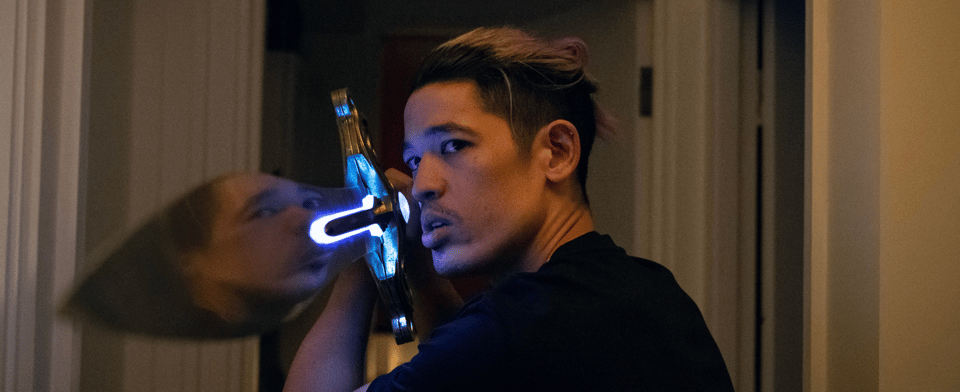
MISCELLANEOUS MEDIA I ENJOYED:
I’ve got a poem for you this time! The translator did a reading on an episode of The Rest Is History podcast and I just adored it.
Ithaca by Cavathy
translated by Daniel MendelsohnAs you set out on the way to Ithaca
hope that the road is a long one,
filled with adventures, filled with understanding.
The Laestrygonians and the Cyclopes,
Poseidon in his anger: do not fear them,
you’ll never come across them on your way
as long as your mind stays aloft, and a choice
emotion touches your spirit and your body.
The Laestrygonians and the Cyclopes,
savage Poseidon; you’ll not encounter them
unless you carry them within your soul,
unless your soul sets them up before you.Hope that the road is a long one.
Many may the summer mornings be
when—with what pleasure, with what joy—
you first put in to harbors new to your eyes;
may you stop at Phoenician trading posts
and there acquire fine goods:
mother-of-pearl and coral, amber and ebony,
and heady perfumes of every kind:
as many heady perfumes as you can.
To many Egyptian cities may you go
so you may learn, and go on learning, from their sages.Always keep Ithaca in your mind;
to reach her is your destiny.
But do not rush your journey in the least.
Better that it last for many years;
that you drop anchor at the island an old man,
rich with all you’ve gotten on the way,
not expecting Ithaca to make you rich.Ithaca gave to you the beautiful journey;
without her you’d not have set upon the road.
But she has nothing left to give you any more.And if you find her poor, Ithaca did not deceive you.
As wise as you’ll have become, with so much experience,
you’ll have understood, by then, what these Ithacas mean.
And that was September! Thanks for reading along! If you’d like to yap about any of the books, TV shows, movies or whatever else I’ve posted here, you can click the link below and drop a comment, or you can find me, as always, @feedthewriter on Instagram and Bluesky.
-
I LOVE that Christopher Chung is Australian! (and that he is the new adaptation of My Brilliant Career). Also yes agree whole heartedly on SpaceJam. I got to work with Joe Pytka once!
Add a comment: